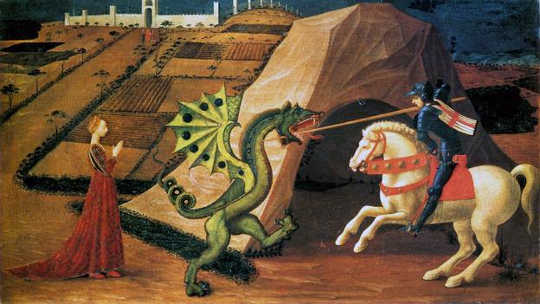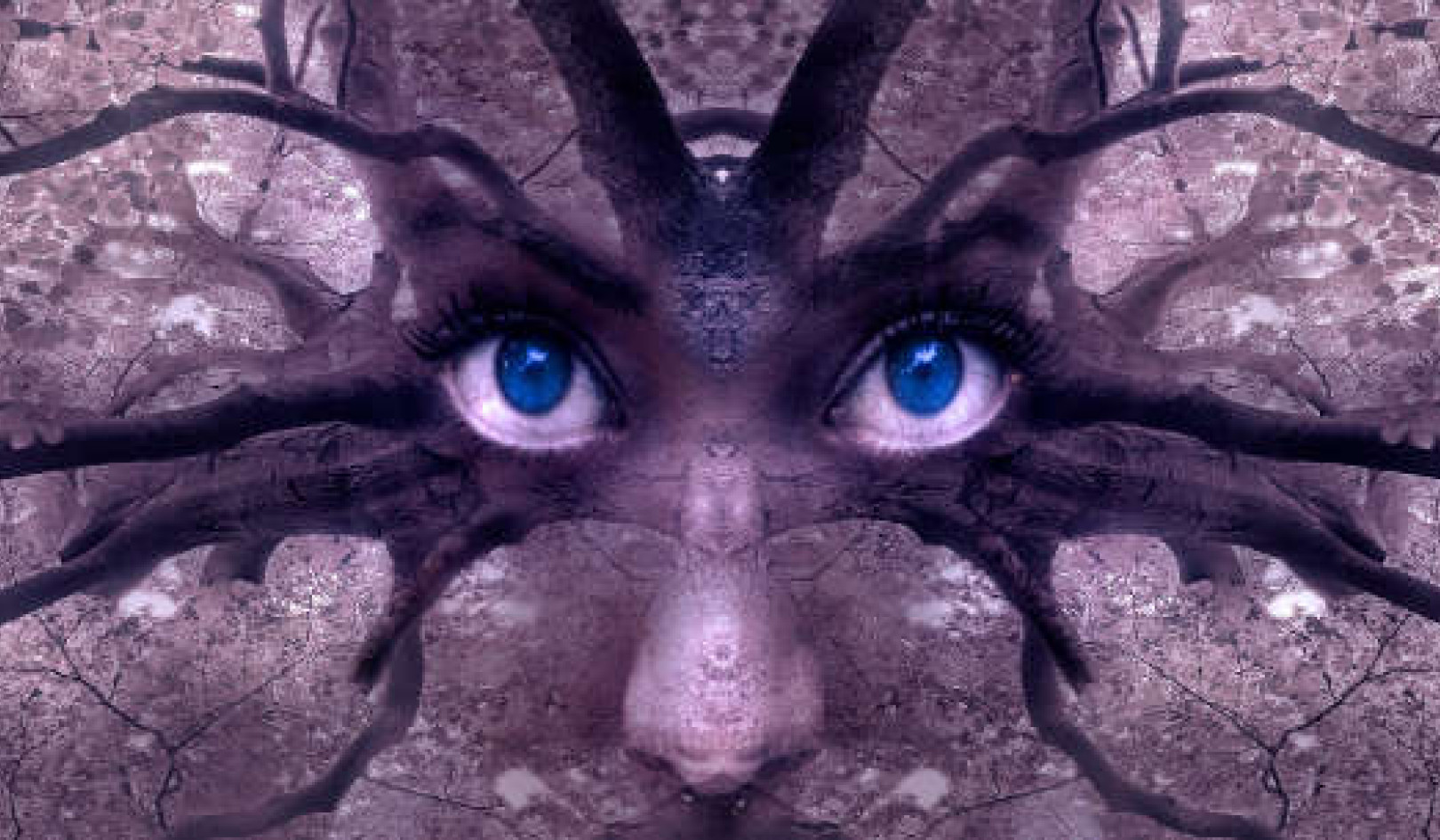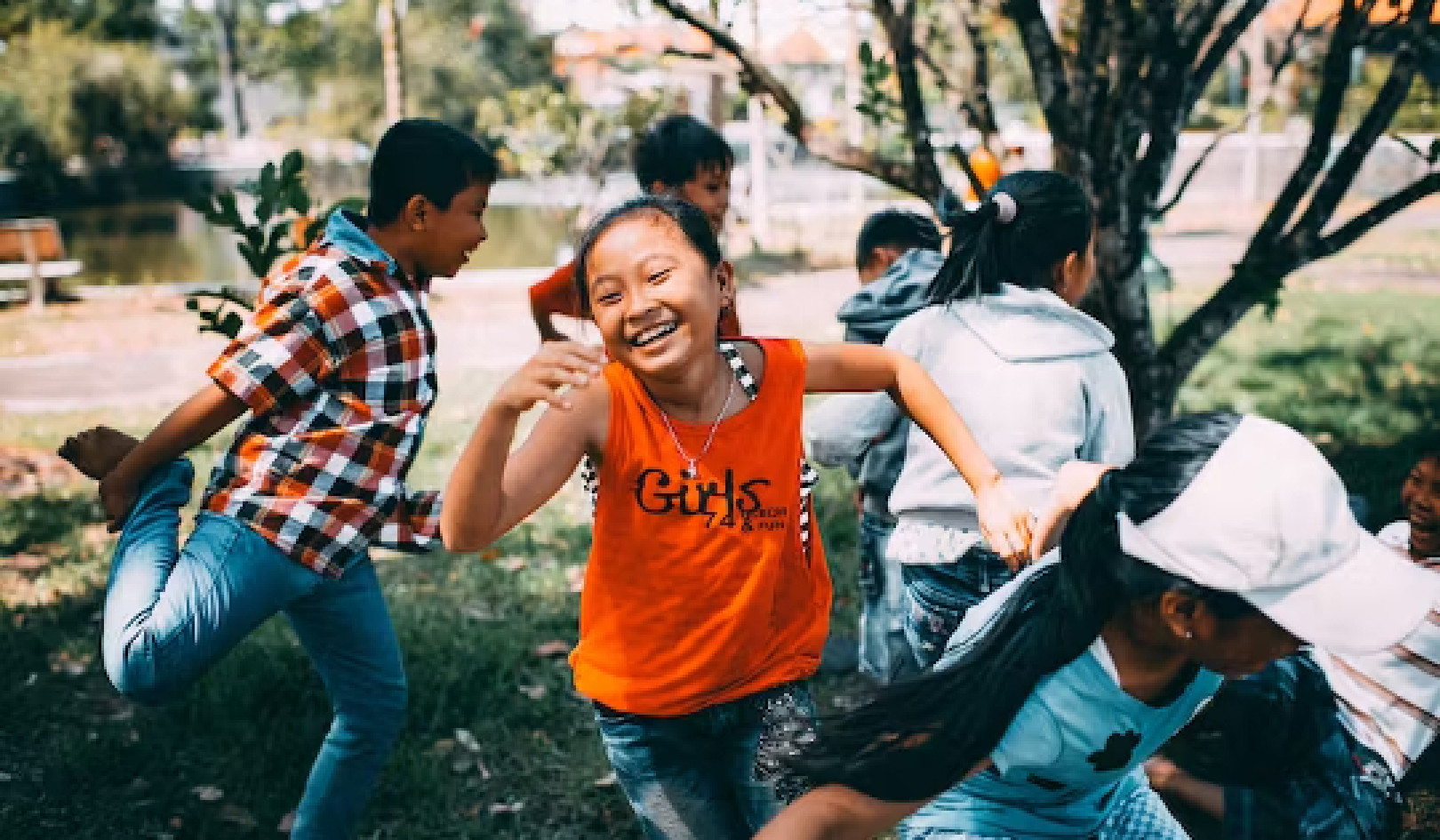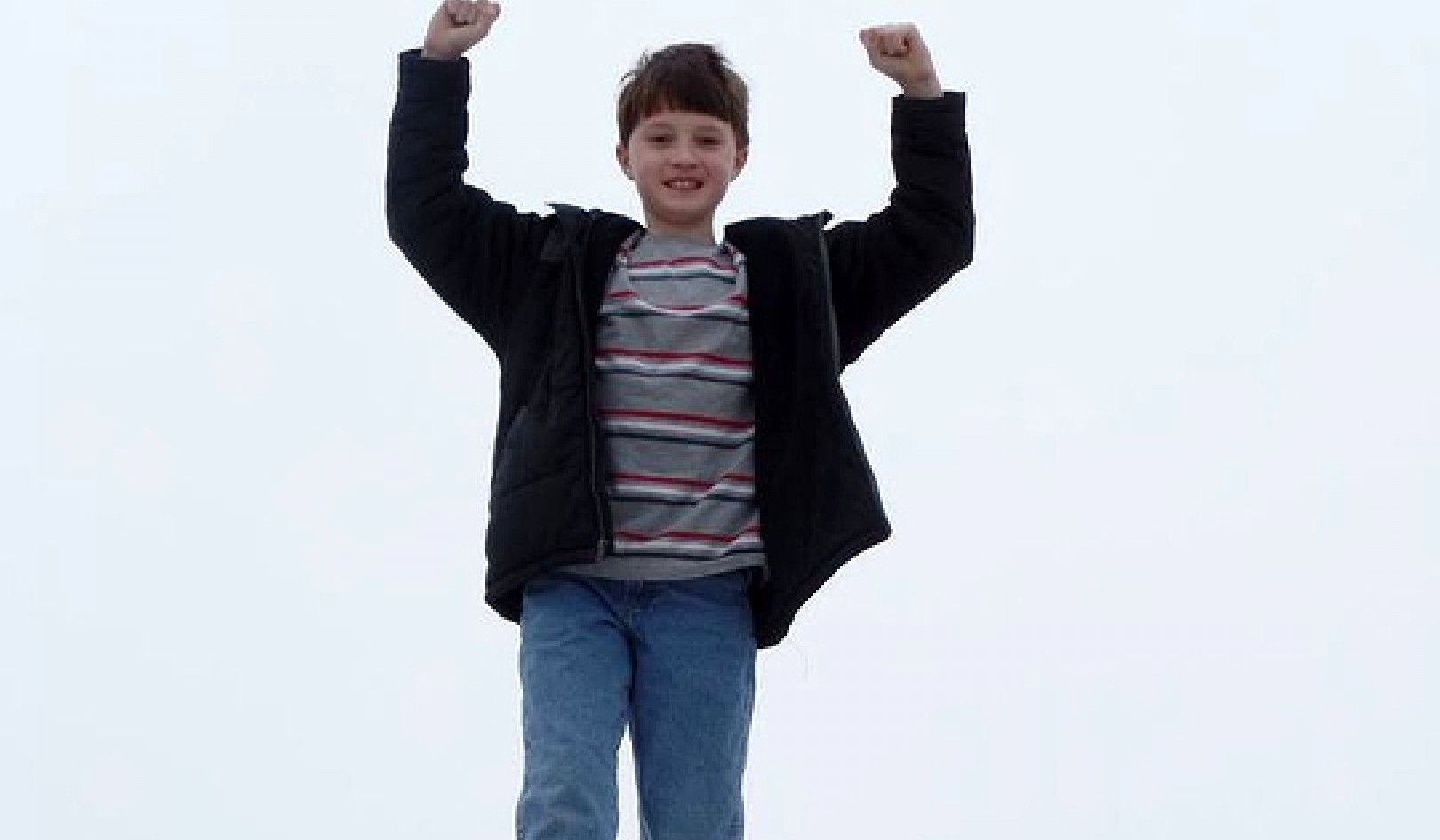
Small but insidious dragons lurk to intercept us on our spiritual journey through the land of ecstasies and voids. One of these is the infamous sheltering dragon.
The Sheltering Dragon
I recall walking one day by an open vacant lot that had rugged stones all about it on which children were playing. One little girl was ready to jump from a four-foot rock onto the sandy ground and my immediate instinct was to protect her, to warn her not to jump for fear of her getting hurt. I caught myself, though, and kept my silence. Instead, I explored my feelings in this whole episode. What sort of a person would I be if someone had deprived me from my childhood right up to today of every skinned knee or hurt feeling or bloody arm each time I desired to "jump" literally or symbolically?
What is this nursing instinct-like reaction that we have towards others' risky ventures? Does this caution clothed in sympathy too often prevail and so prevent the experience of extremes and even of God? Why don't we let each other be, including let each other suffer the consequences of our desires and decisions? Why, if I am willing (though uneager) to suffer some pain myself, do I want to deprive others of this real experience? Who are we to say what is best or better for a person, as if being sheltered from hurt is always and every time the best thing? Perhaps the answer is most often found in our attitudes towards our own "vision of happiness" -- a place, we imagine, where there would be no pain nor conflict. A perfectly sheltered existence; a sheltered society.
This freedom from pain may be the most expensive spiritual price we late twentieth century persons have had to pay for our culture's compulsion for security. But sheltering is not living and is therefore not a worthy goal for a people; as Rilke has put it: "Why do you want to shut out of your life any agitation, any pain, any melancholy, since you really do not know what these states are working upon you?"
Just a few weeks after my experience with the child in the vacant lot, several adults and myself were sitting around discussing our various concerns and needs of the time. One woman, a mother of three and a fine friend, was talking of her father's serious illness and pending death (he being well along in years and having suffered several heart attacks). He had been raised a very strict Catholic in the old German school and was terrified both by the thought of death and by the "liberal" (a loosely-used term if ever there was one) changes of the Church of late, particularly regarding his well-preserved notions of heaven, hell, purgatory, and other explicitly medieval revelations on the afterlife. The daughter, though critical in her own spiritual life and in the lives of her children, was bent on sheltering her father from the death-bed anxiety of facing the fact that a lifetime of literal acceptance of all that Catholicism has taught might have been a mistake.
Now one can recognize the daughter's nursing instincts and sympathize with them. But I argued then as I do now that, in the long run, we have no more right protecting and sheltering our parents than we do our children or ourselves (or anyone else we love) from their necessary wrestling with despair and hope, loss of faith and rebirth of faith, death and life. We do not run our spiritual lives on sympathy but on courage and vision; therefore, why should we allow sympathy to dictate the kind of spiritual voyage our loved ones make? "The true body is a body broken," notes Brown. "To be is to be vulnerable. The defense mechanisms, the character-armor, is to protect from life. Frailty alone is human; a broken, a ground-up (contrite) heart." Love hurts; life hurts; God hurts; experience pains. How can any of us be said to have learned love or life or experience of God apart from our bruises and bleedings, our losses and our broken dreams.
Once again we return to a basic question: What are the forces in our society that have educated us to even consider that sheltering ourselves or our children or even our parents is a worthy goal? Where have we learned to trust life -- and the healing processes that are built into all that lives, from plant to animal to man and woman -- so little? An experience of loss and finitude on one's deathbed might be the kindest and truest God experience of one's lifetime. Without being paranoid, it almost smells of a conspiracy -- this effort to talk and sell insurance and security so that it becomes not only a blanket to cling to but a blanket that smothers, stifling all experience and therefore God himself. On a college campus where I was teaching this past year, there dared to appear an insurance agent whose guilt-ridden pitch addressed to college students went something like this: "Have you given thought yet to buying life insurance (this for twenty-year olds!) for your parents' sake. For if you drop dead suddenly, they will miss you a lot, and your parents will have nothing to remember you by without a life insurance payment."
My reaction to this kind of salesmanship was of such anger that I really did hope that this gentleman himself had plenty of life insurance for should I have met up with him he might well have cashed in on it. (Or so I thought. As it turned out, he confined his preaching to the dorms, not daring -- fortunately -- out on campus in the light of day.) What we have here is a total misnomer. This is not life insurance; it is death insurance. To insure death instead of life; to insure sheltering instead of lifting; painlessness instead of Godliness; financial memory instead of ecstatic memories: to "guarantee" such results, all you have to do is get persons (especially vulnerable, young ones) to internalize this perverse mania for sheltering.
That we should allow such dragons of death loose in our dormitories, into the privacy of our homes via television commercials and newspaper appeals, and, alas, into our very minds through attitudes they implant in magazine ads and in our culture as a body -- this is conspicuous proof that we are close to becoming a sheltered society. A society sheltered from our deepest selves; our she and our he self; our moral as distinct from moralizing self; our id self -- and being so sheltered from our truest selves, we are also sheltered from the experience of God. For a vulnerable God can only communicate with equally vulnerable persons. Protection does not signify strength; vulnerability does. Jesus did not learn to accept the crucifixion in an instant but through a lifetime of imitating the vulnerability of God. Our capacity to be vulnerable is not our weakness but our strength; for out of pain is born joy; and from despair, hope; and from being hated, love!
Vulnerability is a prize -- beautiful, exciting, luring and tasteful. It deserves to be sought after with more abandon and zeal, more eagerness and full-heartedness than a boxer seeks a prize fight or an executive seeks to be number one. For with the prize of vulnerability and the consciousness it brings comes a life of surprises. A vulnerable person is a person full of surprises and ready for ever more surprises. Such a person prizes surprises. To be spiritual is to be vulnerable. Beware of the sheltering dragon! He will devour us with his promises of shelter. Beware of the dragon clothed in security and promising shelter. He will kill our very souls. And with them, God.
The English mystic Thomas Traherne warns us that "we infinitely wrong ourselves by laziness and confinement. All creatures in all nations and tongues and peoples praise God infinitely: and the more for being your sole and perfect treasures. You are never what you ought till you go out of yourself and walk among them."
The Dragon of Vicarious Living
Another sinister and insidiously hostile dragon -- one that prowls about seeking to waylay us from our everyday oath of spiritual experience -- is the dragon of vicarious living. Like the sheltering dragon, this particular beast makes promises that at first sound generous of him and beneficial to us. Like all small but insidious dragons, he cloaks himself in ersatz ecstasies and nice promises. But to follow him is to learn, to our peril, that being nice is not being alive or being a lover. What is the particular promise the vicarious-living dragon makes? Since we are all prone to a certain self-pity, a certain weariness at our having to make such difficult spiritual journeys up mountains, down lonely, dusty roads, in rain and cold and sleet, seemingly by ourselves, this nice dragon steps out from behind the trees and promises, "Let me do it for you; let me take you there."
But there is a profound lie in any such promise. The lie is simply this: no one, no institution and no dragon, can experience God for me or for you or for anyone else but himself. Everyone has to grow into his own kind of creator; and everyone experiences ecstasy in his own time and own place and own manner. Sure, we can use and eagerly welcome guides along our journey, but the difference between a true guide and an enemy dragon in guide's clothing can usually be discerned at exactly this juncture: how much is being promised? For a true guide does not promise ecstasy, only assistance in the journey. A vicarious-living dragon, on the other hand, will promise the sun and moon to convince you to surrender your own need for experiences of God.
When such dragons seek to tempt us, we need to ask ourselves: Who can experience nature for me? or music? or love making? or pain? or the void? or dance? or the sea? or the quiet of the mountain top? or my own poetry? or my own children? or my own loving of a friend? or my own memory of these and other beauties? The answer is clear: no one. Only we can experience God for ourselves and if we allow the deceptions of the vicarious-living dragon to become internalized into our own habits of responding to life, then we have allowed death into our very home; a lethal poison invades our soul. For no one, but nobody, can live another's life for him.
Now all this seems clear enough. Who would disagree? But whether we are aware of it or not, our society has built-in dragons of vicarious living that are constantly trying to seduce us willy-nilly into surrendering our own need to experience God. Some of them are introduced here. First come parents. Some parents (usually because they have not let themselves go to the gifts of life but cling to their sole role as parent) too often become victims of the all-devouring vicarious-living dragon. "Let me live your life for you" or "this is how to do it" is advice that is very far from healthy if children of whatever age (especially married ones) take such counsel too seriously.
Parents, and especially older ones, have much experience of life to pass on to other generations; but it is valid only insofar as it is truly life experience, experience of the ecstasies of life. The surest test for the authentic guruship of parents is the following: are they still involved in searching out and experiencing the joys and ecstasies of creation? If they are not, then they are busying themselves with others' lives -- something they have no right doing. For just as children need to resist vicarious living from parents, so parents need to resist living vicariously in their children or grandchildren. The test is always: what can they enjoy, create, take delight in when the children or grandchildren are absent? What set of symbolic toys have they learned to play with?
Other instances of dragons of vicarious living abound in our culture. Wherever our being spectators rather than participants in life is reinforced, there the dragon is at work. What Brecht observed of the theater can apply to movies, home, or church in our culture. "They sit together like men who are asleep but have unquiet dreams. True, they have their eyes open. But they don't watch, they stare. They don't hear, they are transfixed. They look at the stage as if bewitched." This is the essence of idolatry: staring; internalizing nothing but being satisfied, even sated, in the process. And it is surely our everyday experience in the very intimacy of our homes with television. How many lives are literally wasted away in staring at that one-eyed dragon as it offers us just enough diversions and promises by way of commercials to keep us continually seduced and mesmerized.
Truly television is our culture's opiate of the masses, keeping people down as masses because it promises to live life for them. Let the actors do it for us -- visit nature and have love affairs and suffering and laughter, too. This one-eyed dragon offers weeks full of adolescent sports competition that entices so many American males to pine nostalgically for a kind of competition they may or may not have enjoyed before they became family men. Vicarious ecstasy is always a pseudo and ersatz ecstasy. For there is no such thing. God is everybody's experience; such an experience cannot be done for us.
The Shortcut Dragon
Not only is a dragon suspect for promising salvation (a promise no one can make for another), but also there are even dragons bold enough to promise the experience of God in shortcut form. These dragons are especially to be found lurking along the byways of North America, already so well known for TV dinners, instant communications, pocket calculators, and rapid conquest of time and space. If we can conquer time with face-lifts and miniskirts and space by jet travel and electronic communications, surely, the reasonable dragon argues, we can also conquer inner time and inner space (that is, spiritual time and space) with some prepackaged or frozen spiritual voyages. "Just thaw and go," promises this dragon. Just get high. That is all.
But this Reader's Digest way to God, the shortcut way, is doomed to failure. For ecstasy is not the same as emotional outburst or emotional high. Such highs leave out essential steps in authentic ecstasy, such as the ecstasy of sharing with others; it sidesteps the socially moral (justice) while reducing "morality" solely to private matters, such as sexual practices or imagination. It sidesteps the wasted time element that all authentic ecstasy, from friendship to stargazing to learning to dance or play the piano, implies. By eliminating creation's wasted times, it manipulates rather than respects creation. It is no wonder that such shortcut spiritualities tend to culminate in proselytizing and thus confusing "my" way of salvation with another's. The price one pays for such shortcutting is dear indeed, for one ends up not more vulnerable but less so; one ends up more dogmatic and controlled and desirous of controlling others than before one's instantaneous "conversion."
No, like any natural process, the growth of a rose or the development of a fetus, there is a certain time that creation needs for a true creation spirituality. Even God works in time. Every spiritual journey is just that -- a journey -- and the distance one travels is covered only in a certain time. The ways of plotting the distances and time lapses are multiple. But what is common to each of them is striking: first, that there is no such thing as instantaneous shortcutting to God; and, second, that whatever map one cares to take on the journey, God is invariably the last, not the first, of the spiritual experiences.
What becomes dangerously lost sight of and one-sided in the spiritual perspective of the shortcutting dragon is that the true enjoyment of creation and Creator takes skills. There is an art to experiencing God. An art is not learned by shortcutting any more than it is learned by someone else doing it for us (vicarious living). An art takes time to develop, for it takes skill and effort and application and experimenting and mistakes. And all these things take time. In periods like ours, when the spirit of life enjoyment is lost, we need to train ourselves to enjoy life and to put the experience of pleasure of God first. One does not throw a "successful" party overnight and purely spontaneously but with some planning and deciding and preparation. Surely the party that is true spiritual joy and pleasure of God's company is not brought about any more easily.
Shortcutting dragons of all stripes and scales need not be confused with efforts to simplify and be spontaneous, for all such dragons are friendly to our spiritual journey, not inimical to it. How does one tell the difference between spiritual simplicity and pseudoecstatic shortcuts? One is natural; the other, forced. One is deep and derives its power from the depths; the other is superficial. One is so deep that it can afford to be quiet; the other is loud and noisy and continually talks about its favorite topic -- itself. One is so deep at its roots that it mixes with other roots and thereby becomes socially conscious, aware of the We and not just the I; the other tends to be forgetful of injustice toward others. The one creates and reverences other creators of music and painting and dance and all; the other barely acknowledges art.
Simplicity, then, is a real result of experience of God -- the simplicity of a child; a capacity to laugh at oneself, others, and even God. Shortcutting, on the other hand, is not a laughing matter, as dragons who deceive us into such a path readily admit by their own lack of humor and perspective.
Article Source:
 Whee! We, Wee All the Way Home
Whee! We, Wee All the Way Home
by Matthew Fox.
Reprinted with permission of the publisher, Bear & Company / Inner Traditions International. ©1981. www.innertraditions.com
Click here for more info and/or to order this book
About The Author
 Matthew Fox is a Dominican scholar, a popular speaker, and an innovative educator whom one commentator has called "a crusader and a smasher of chains." Fox is author of over 20 books, including the best selling Original Blessing; The Reinvention of Work; A Spirituality Named Compassion; Breakthrough: Meister Eckhart's Creation Spirituality in New Translation; Natural Grace (with scientist Rupert Sheldrake), and many more.
Matthew Fox is a Dominican scholar, a popular speaker, and an innovative educator whom one commentator has called "a crusader and a smasher of chains." Fox is author of over 20 books, including the best selling Original Blessing; The Reinvention of Work; A Spirituality Named Compassion; Breakthrough: Meister Eckhart's Creation Spirituality in New Translation; Natural Grace (with scientist Rupert Sheldrake), and many more.
























